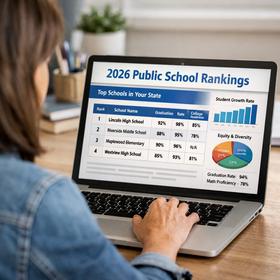For parents of children attending public schools, it can be exceedingly difficult to express their concerns about disciplinary measures, school policies, or the appropriation of district funding. In the majority of cases, the best place to start is the school board. However, parent-led battles within the public school setting are often frustrating, futile, and swamped in bureaucratic red tape. This guide can help you navigate the school board infrastructure and understand how to best advocate for your child.
Great Schools describes what a school board does as follows: "A well-run school board plays a vital role in keeping your local schools on track, always with the student's best interests in mind. Ideally, a school board works with, and for, their community with the overarching goal of improving your district’s local schools. They should be maintaining a strong organizational structure for their district, one that empowers the superintendent and district administrators to manage the schools, the teachers to effectively teach, and the students to be supported in a thriving learning environment."
This video describes what a school board does.
The School Board: Where Major Decisions Are Made
For parents experiencing a personal issue related to schooling, the principal or superintendent should be the first port of call. However, if there are concerns relating to the school’s policies or curriculum, the elected school board is the only faction with the authority to modify existing policies or apportion funding to new programs.
Naturally, becoming an elected member of the school board is the most effective way to ensure your voice is heard, but for most parents, this alternative simply is not viable. Subsequently, some parents choose to attend school board meetings to watch and comment on the board’s agenda and decisions.
However, other parents are becoming more proactive in lobbying and influencing their school districts. Around the country, large groups of unhappy parents are uniting and harnessing the power of the internet to form action groups, develop strategies, and influence school board decisions.
For example, one parent-led campaign in Fairfax County dramatically altered grading policies at a school in the area, as reported by the Washington Post. Prior to the parental lobbying, the students needed to attain 94 for an A-grade. Subsequently, the boundary was lowered to 90.
Another parental coalition in Montgomery County aimed to expose and combat loose credit-card usage by school staff. Parental fears were realized when they gained access to the state audit, and upon the parents’ lobbying efforts, school spending policies were promptly revised.
This video describes the role of a school board member.
Where to Begin: How to Gain Access to the School Board
There are several effective ways to approach the school board with questions and concerns. Generally, school board members welcome the opinions of parents, and you can call, email, or fax a board member with details pertaining to your issue. Be assured that you don’t always need to come up with the perfect solution beforehand – in most cases, the board will brainstorm and analyze several different ideas.
Always remember that members of the school board are elected to work for the parents. Don’t feel guilty about wasting their time; board members can truly benefit from your experiences and perspectives.
However, in the case of pervasive issues, speaking with a school board member might not always suffice. In California, a group of parents was not making progress with the school district in banning “alternate lunches” at school. The “alternate lunches” program stigmatized children whose parents weren’t up to date with school lunch payments. Such children were served a “nutritionally sound” cheese sandwich, but since the sandwich was viewed as a shameful punishment, most children simply threw it out to avoid taunting from their peers.
One outraged parent, William Perno, chose to mobilize parents by creating flyers, starting a mailing list, and speaking with other parents before and after school. A supportive network was created, and individual parents with concerns attended school board meetings. Non-English speaking parents were represented at such meetings by bilingual parents, and eventually, the parent-led lobbying attracted media attention. The “alternate lunch” policy ended when the parent group approached a statewide agency.
Social Networking Sites: The Quickest Way To Mobilize Parents
Many parents are reluctant to approach other parents in person about educational issues, especially in a larger public school setting with little parental cohesion. However, social networking sites have recently proven to be a wonderful “semi-anonymous” asset to organize and mobilize enormous numbers of parents in record time.
For example, parents in Cooper City created a Facebook group to collectively fight planned boundary changes for a local middle school in Florida. Within three days, the group had several hundred members, and over 400 of them attended a community meeting. Similarly, in Wellington, Florida, Lisa Goldman’s Facebook page attracted more than 8000 people in two months. All the members were committed to terminating the new testing program in the local school district. Although the debate is still raging, the parent-led group is growing, bonding, and attracting plenty of attention.
This video explains how school boards determine policy.
Making Your Case
Keep in mind that the No Child Left Behind law forces schools to publish detailed information about issues such as teacher quality and student performance. Parents can use this public information to back up claims, create comparisons with other school districts, and work with the school boards to formulate and implement solutions.
Good old-fashioned research, combined with the proliferation of the Internet, affords parents a better-informed approach to their child’s schooling, as well as a louder voice in school board meetings.
Questions? Contact us on Facebook. @publicschoolreview















